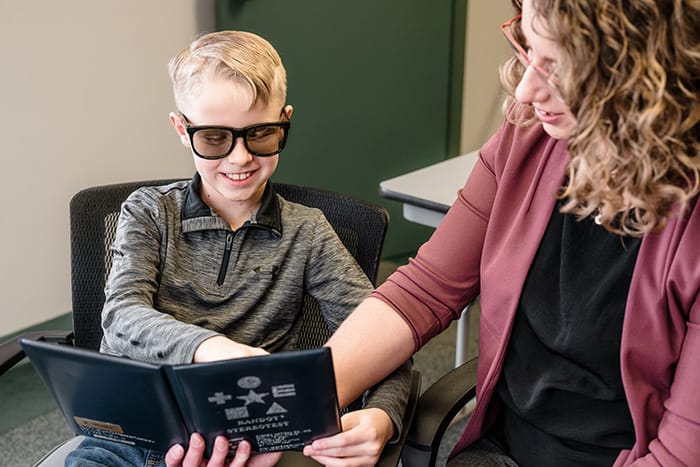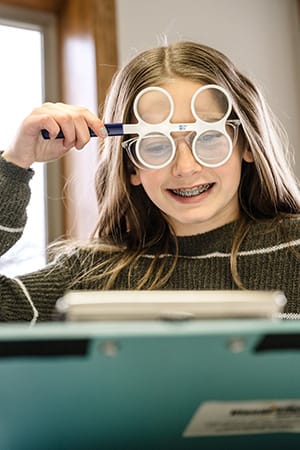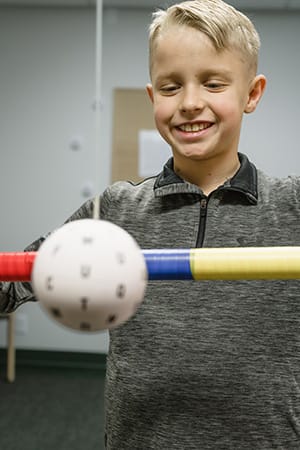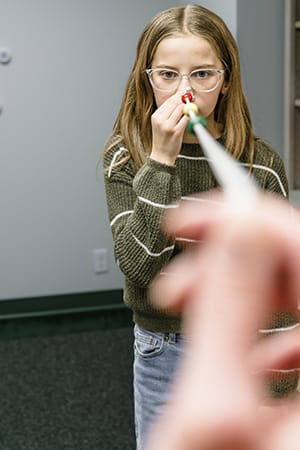Vision Therapy and Rehabilitation
Learn more about Vision Therapy and Rehabilitation at Eyecare Associates Marshalltown.

What is Vision Therapy?
Vision Therapy is a behavioral approach to correcting various eye problems that affect one’s ability to receive and process visual information. A person may have “perfect” vision while reading an eye chart, pass a vision screening by reading 20/20, and still have developmental vision problems. The areas most often affected are focusing, eye teaming, eye movements and visual processing.
Vision Therapy is an individualized treatment program designed to improve and sometimes eliminate conditions such as lazy eye (amblyopia), crossed eyes (strabismus), focusing insufficiency and excess, ocular muscle dysfunction, and learning-related vision disorders. Specialized lenses, filters, prisms and instruments are used in a training program, which is customized for each patient.
Unlike self-directed programs of “eye exercises” marketed to the public, in-office optometric vision therapy is conducted under the supervision of an optometrist and supported by ongoing, evidence-based scientific research.
The goal of optometric vision therapy (“VT”) is not to strengthen eye muscles. Your eye muscles are already incredibly strong, and the vision problems VT aims to treat are rarely caused by muscle weakness. Instead, vision therapy aims to retrain the learned aspects of vision through the recently-understood concept of neuroplasticity.
Who is Vision Therapy for?
It is estimated that 1 in 10 children have a vision problem severe enough to affect their learning in school, but school vision screenings can miss up to half of these problems. A comprehensive vision exam with a developmental optometrist checks all aspects of eye health, vision, and visual skills, and can ensure you or your child is not struggling unnecessarily with an undiagnosed vision problem.
What are some common symptoms vision therapy can help?
- Slow shift of focus from near-to-far or far-to-near
- Difficulty copying or taking notes
- Double vision
- Reversing/confusing letters such as b and d
- Pulling or tugging sensation around eyes
- Unable to sustain near work or reading for periods of time
- Loss of place while reading
- Eyes get tired while reading
- Headaches while reading
- Covering/closing one eye
- Easily distracted when reading
- Decreased attention span (many people with vision problems are diagnosed with ADHD)
- Reduced concentration ability
- Difficulty remembering what has been read
- Loss of balance
- Bothered by movement in environment and/or by crowded environments
- Light sensitivity
- Dizziness
- A sensation of the room spinning
- A sensation of not feeling grounded
- Postural shifts/veering off when walking


